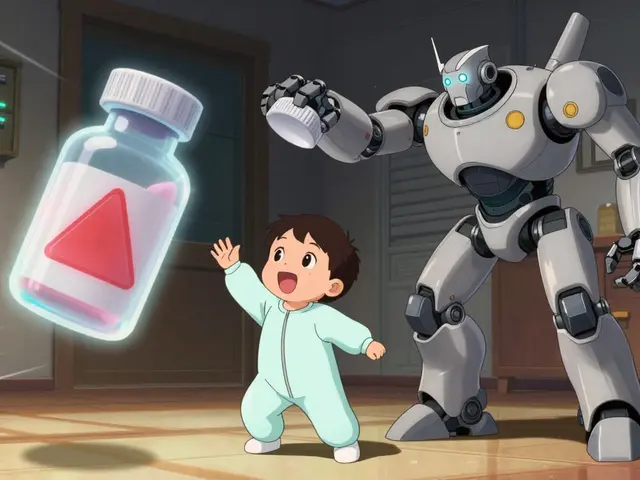Generic Drugs Safety: What You Need to Know Before You Buy
When you pick up a generic drug, a medication that contains the same active ingredient as a brand-name drug but is sold under its chemical name. Also known as non-brand medication, it is required by law to meet the same standards for strength, purity, and performance as the original. Yet, many people still wonder: are generic drugs safe? The short answer is yes—if they’re from a legitimate source. The FDA requires that generics work the same way, in the same amount of time, and with the same effectiveness as their brand-name counterparts. Thousands of studies back this up. In fact, the FDA says generic drugs are used in over 90% of all prescriptions in the U.S. because they’re just as reliable—and cost up to 80% less.
But here’s where things get tricky. Not all pharmacies are created equal. While U.S.-based pharmacies must follow strict FDA rules, some online sellers—especially those outside the country—sell pills that look like generics but contain wrong doses, inactive fillers, or even toxic substances. These aren’t generics. They’re counterfeit. And they’re dangerous. That’s why knowing where your medicine comes from matters more than the price tag. Look for pharmacies that require a prescription, are licensed in your state, and have a verifiable physical address. If a site offers pills without a doctor’s note, walks away from your question about safety, or charges way less than everyone else, it’s a red flag. Real generic drugs are affordable, not suspiciously cheap.
Another common fear is that generics don’t work as well because they look different. But that’s just the inactive ingredients—color, shape, or filler—that change to avoid trademark issues. The active ingredient? Same as the brand. Take ibuprofen, a common pain reliever found in both generic Motrin and brand-name Advil. Whether it’s labeled Motrin or just ibuprofen, it’s the same molecule doing the same job. Same with levothyroxine, the thyroid hormone used to treat hypothyroidism. Millions rely on generic Synthroid every day with no difference in results. The only time you might notice a change is if you switch between different generic brands—because fillers can affect how fast the pill dissolves in your stomach. That’s rare, and your doctor can help if you feel something’s off.
What about international supply chains? You’ve probably heard stories about drugs made overseas. That’s normal. Most brand-name and generic pills are made in India, China, or other countries. The FDA inspects these facilities just like U.S. plants. If a factory fails an inspection, the FDA blocks its products. So the problem isn’t where the drug is made—it’s whether the pharmacy you buy from verifies its suppliers. That’s why buying from trusted U.S. pharmacies matters. They handle the vetting so you don’t have to.
And what about the long-term effects? There’s no evidence that generic drugs cause more side effects than brand names. In fact, because they’re used more often, we have more real-world data on them. If you’ve been on a generic for months and feel fine, you’re doing exactly what you should. If you’re switching from a brand to a generic and feel different, talk to your pharmacist. Sometimes, a small adjustment in timing or dosage helps. But don’t assume the generic is the problem—it’s usually not.
Below, you’ll find real guides from people who’ve been there: how to spot safe online pharmacies, why insurance treats combo generics differently, what to do if your generic doesn’t seem to work, and how to avoid counterfeit pills disguised as cheap meds. These aren’t theory pieces. They’re practical, tested advice from users and pharmacists who’ve seen the good, the bad, and the dangerous side of generic drugs. Whether you’re saving on blood pressure pills, antibiotics, or fertility meds, you deserve to know what’s in your bottle—and where it came from.






